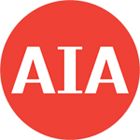AIA Billings Index Slows But Remains Healthy
 Washington, DC – For the eighteenth consecutive month, architecture firms reported increasing demand for design services in July, according to a new report from The American Institute of Architects (AIA). The AIA Architecture Billings
Index (ABI) score for July was 51.0.
Washington, DC – For the eighteenth consecutive month, architecture firms reported increasing demand for design services in July, according to a new report from The American Institute of Architects (AIA). The AIA Architecture Billings
Index (ABI) score for July was 51.0.
While July's score was lower than June’s score of 53.2, it still indicates stable business conditions for architecture firms (any score above 50 indicates an increase in billings from the prior month). Also in July, both the new project inquiries
and design contracts indexes moderated from June but remained strong with scores of 56.1 and 52.9 respectively.
“Despite architecture services employment recently surpassing pre-pandemic levels, the ABI score this month reflects the slowest growth since January, and marks the fourth straight month with a lower score than the previous month, indicating a slowing
trajectory in billings activity,” said AIA Chief Economist, Kermit Baker, Hon. AIA, PhD. “With a variety of economic storm clouds continuing to gather, we are likely looking at a period of slower growth going forward.”
Key ABI highlights for
July include:
Regional averages: South (53.6); Midwest (52.2); West (51.7); Northeast (48.4)
Sector index breakdown: multi-family residential (52.8); commercial/industrial (52.2); mixed practice (52.1); institutional (49.6)
The regional and
sector categories are calculated as a three-month moving average, whereas the
national index, design contracts and inquiries are monthly numbers.
Visit AIA’s website for more ABI information.
About The American Institute Of Architects
 For over 150 years, members of the American Institute of Architects have worked with each other and their communities to create more valuable, healthy, secure, and sustainable buildings and cityscapes. Members adhere to a code of ethics and professional conduct to ensure the highest standards in professional practice. Embracing their responsibility to serve society, AIA members engage civic and government leaders and the public in helping find needed solutions to pressing issues facing our communities, institutions, nation and world. For more information, visit www.aia.org.
For over 150 years, members of the American Institute of Architects have worked with each other and their communities to create more valuable, healthy, secure, and sustainable buildings and cityscapes. Members adhere to a code of ethics and professional conduct to ensure the highest standards in professional practice. Embracing their responsibility to serve society, AIA members engage civic and government leaders and the public in helping find needed solutions to pressing issues facing our communities, institutions, nation and world. For more information, visit www.aia.org.